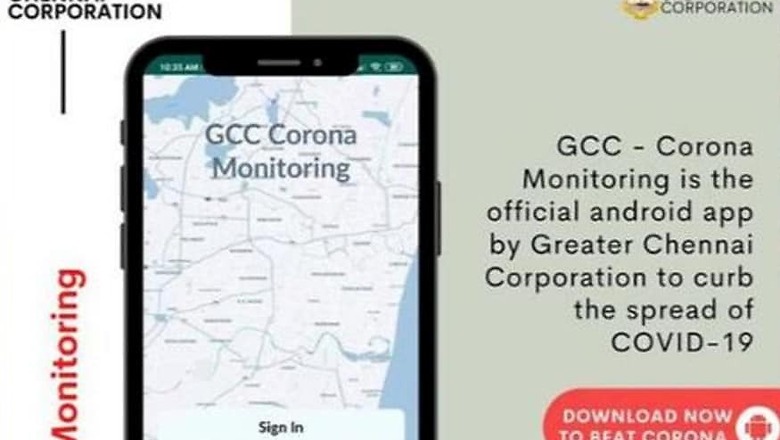
views
With one eye on fighting the coronavirus pandemic and another on learning for future challenges, Greater Chennai Corporation has launched an app earlier this month, called GCC Corona Monitoring, to geotag people with fever or other coronavirus symptoms in the city. People with such symptoms can upload a photo of their house, which will send their location to the Corporation. The government's doctors would then contact them within the next 24 hours, and if they're found to be symptomatic of Covid-19, would be taken for treatment.
The app is also helping officials identify possible Covid-19 hotspots in the city. "If many people report from the same area, we'll know that it's an issue and we'll give special treatment and focus. There could be a chance of community spread there," says MP Azhagu Pandia Raja, a research fellow in the ministry of housing and urban affairs in the Chennai Corporation, and the creator of the app.
He further added, "We have a lot of people in quarantine. Even though we had their address, we might not have the exact locations. So if they send photos through this app, we get their locations. And in case of emergencies, we can quickly send responses to them. At the same time, we can see if there are many clusters of quarantined people in a certain area. So that we can channelise more resources, spray more disinfectants in the area etc."
The GCC first added 'containment zones' in the app through an update on Monday, April 13, which are sealed areas with multiple cases. "We have updated 41 areas as of now and we'll keep updating it," says Azhagu. "When we get a new response, we'll first check if they're in or near a containment zone. Then we'll give them more priority." The app claims to have registered more than 30,000 downloads (with 10,000+ on the Google Play Store at the time of publishing), with around 50 people reporting fevers every day. Assuming around three or four members are mentioned through one account within the app, the corporation is monitoring the health of around 1 lakh people in the city through the app.
Field workers and telephone helplines continue to be the main channels of help, but use of technology is proving to be a 'learning curve' for the future for many state governments. "In future if there's a situation, we should be prepared and not averse to technology. Now we have an idea of how the people are responding and how we can coordinate and send help," says Azhagu.
"Say there's a more fatal virus like Nipah, field workers will find it harder to attend to all patients directly. In such times we'll be relying on technology, so this experience will help. One of the reasons for Kerala doing very well is the experience they gained from Nipah virus. This is the first time for us — in case there's a future challenge, we can take decisions quickly in all fronts," he said.




















Comments
0 comment